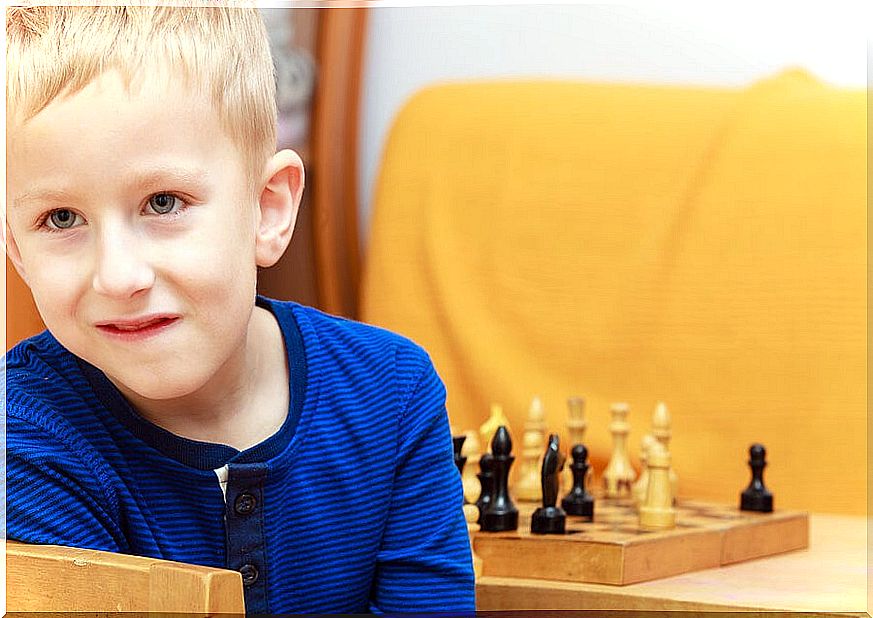4 Mistakes We Make With Gifted Children

When you are the father of children with high IQ, it is normal that sometimes we do not know how to react to a certain situation. On repeated occasions there are mistakes that we make with gifted children; they usually occur because we don’t know the right way to react to our children’s brilliant abilities or weaknesses.
Homeschooling children tends to get a bit difficult, stressful, and intimidating, and even more so with highly gifted infants, as their demands are more challenging.
Tools are scarce, despair comes to the fore, and that is when we begin to unintentionally place obstacles in their way; many times we do it even without noticing it.
However, the good disposition and the desire to help our little ones drive us to look for the right tools and strategies to highlight the brilliance they possess. The important thing is to find the appropriate educational model, which meets the child’s needs, and complement it at home.
So when the mistakes we make with gifted children flourish, the least we should feel is guilt. The best thing in these cases is to investigate the advantages and disadvantages of having a boy with high intellectual capacities to, in this way, help his development be optimal.
Mistakes We Make With Gifted Children
1. Scolding for bad writing
Generally, when reviewing children’s school assignments, we come across a handwriting of which we are not very proud. So, we call their attention without knowing why this bad writing. The reason lies in what is called psychomotor intellectual dyssynchrony syndrome.
This pathology refers to writing problems due to the difficulty of coordinating hand movements. The insistence that is imposed on the child in writing correctly can cause a state of anxiety and dissatisfaction with himself. This is a very common situation in homes with gifted children.
In these cases, we must treat the little one with patience and a lot of affection. They like to be recognized for their achievements, so negatively emphasizing this weakness is leading to low self-esteem.
Therefore, if they have this difficulty, the most sensible thing is to help them correct the letter with simple penmanship, so that they learn to shape the words. This is a test that can easily be passed.

2. Punishments for giving a bad explanation
When we entrust the child to do a reading, we think that, because he is gifted, he will make an extraordinary explanation. By not meeting our expectations, in some cases, we subject them to unnecessary punishment. Thus, we do not look for the reason for its failure and neither do we contribute with our attitude to improve it.
One of the causes of this difficulty is that children with high intellectual performance have a greater capacity for reasoning than for language. They don’t memorize what they read, they just need to understand.
For this reason, when explaining, they do it with difficulty, since they cannot fit the words with what they read previously. This is called language and reasoning dyssynchrony.
3. Force them to belong to a group in which they are not comfortable
Gifted children often seek the company of older people, as their IQ and maturity can match them. They intervene appropriately in your conversations, contribute their ideas and, in some cases, come to solve problems very easily.
Many parents see this inappropriate attitude and force them to participate and meet with children their own age. By forcibly entering these groups, they feel isolated, introverted, and have no desire to manifest their abilities. In some cases, this attitude causes rejection and bullying from their peers.
4. Lack of interest in helping
Gifted children are very curious. They have the need to investigate and learn from everything that catches their attention. However, there are parents who do not have enough time or desire to help them; therefore, they respond poorly to the questions they are asked or simply leave them alone when they have an assignment.

This is a serious and common mistake. The intention of parents should always be to help their children one hundred percent to improve in all their areas.
If the child asks you too many questions, it is because he has a need to learn and wants to do so. We must respond in a good way, so the little one is nourished by knowledge and feels the support of his family.
To avoid the mistakes we make with gifted children, we must start by accepting them for who they are. It is vital not to lose patience with their curiosity, not force them to do anything, advise them and encourage them to take on challenges without fear of failure.
Ultimately, taking the time to help them with their assignments and praise them when they reach their goals is a priority. In this way, we will have happy children, who will never be afraid to show their abilities.










